Black’s Law Dictionary 3rd Edition, pages 1576-1577:
SALE. a contract between two parties, called, respectively, the “seller” (or vendor) and the “buyer,” (or purchaser) by which the former, in consideration of the payment or promise of payment of a certain price in money, transfers to the latter the title and the possession of property. See Pard. Droit Commer. 6; 2 Kent, Comm. 363; Poth. Cont. Sale, 1, and see Butler v. Thomson, 92 U. S. 414, 23 LK. Ed. 684; Ward v. State, 45 Ark. 353; Williamson v. Berry, 8 How. 544, 12 L. Ed. 1170; White v. Treat (C. C.) 100 F. 291; Iowa v. McFarland, 110 U. S. 471, 4 S. Ct. 210, 28 L. Ed. 198; Goodwin v. Kerr, 80 Mo, 281; State v. Wentworth, 35 N. H. 443; Com. v. Packard, 5 Gray (mass.) 103; Clemens v. Davis, 7 Pa. 264; Tompkins v. Hunter, 149 N. Y. 117, 43 N. E. 532; In re Grand Union Co. (C. C. A.) 219 F. 353, 356; Snyder v. Stanley, 77 Ind. App. 253, 133 N. E. 512, 514; BUrke v. Boulder Milling & Elevator Co., 77 Colo. 230, 235 P. 574, 575.
A contract whereby property is transferred from one person to another for a consideration of value, implying the passing of the general and absolute title, as distinguished from a special interest falling short of complete ownership, Arnold v. North American Chemical Co., 232 Mass. 196, 122 N. E. 283, 284; Faulkner v. town of South Boston, 141 Va. 517, 127 S. E. 380, 381.
The contract of sale is an agreement by which one gives a thing for a price in current money, and the other gives the price in order to have the thing itself. Three circumstances concur to the perfection of the contract, to-wit, the thing sold, the price, and the consent. Civ. Code La. art. 2439.
A transmutation of property from one man to another in consideration of some price or recompense in value. 2 Bl. Comm. 446.
The transfer of property for a fixed price in money or its equivilant. U. S. v. Benedict (C. C. A.) 280 F. 76, 80.
“Sale” consists of two separate and distinct elements; First, contract of sale which is completed when offer is made and accepted and, second, delivery of proper which may precede, be accompanied by, or follow, payment of price as many have been agreed on between parties. Inland refining Co. v. Langworthy, 112 Okl. 280, 240 P. 627, 629.
“Sale,” as applied to relation between landowner and real estate broker working to secure purchaser of land, means procuring purchaser able, ready and willing to buy on terms fixed by seller. Resky v. Meyer, 98 N. J. Law, 168, 119 A. 97, 98; Walker v. Russell, 240 Mass. 386, 134 N. E. 388, 390; T. W. Sandford & Co. v. Waring, 201 Ky. 169, 256 S. W. 9, 10; Humphries v. Smith, 5 Ga. App. 340 (1), 63 S. E. 248.
Black’s Law Dictionary 8th Edition, page 4165:
sale,n.1. The transfer of property or title for a price. See UCC § 2-106(1). [Cases: Sales 1; Vendor and Purchaser 1. C.J.S. Sales § 2; Vendor and Purchaser§§ 2, 5.] 2. The agreement by which such a transfer takes place. • The four elements are (1) parties competent to contract, (2) mutual assent, (3) a thing capable of being transferred, and (4) a price in money paid or promised.
absolute sale.A sale in which possession and title to the property pass to the buyer immediately upon the completion of the bargain. Cf. conditional sale. [Cases: Sales 454; Vendor and Purchaser 79. C.J.S. Vendor and Purchaser §§ 125, 141.]
approval sale.See sale on approval.
auction sale.See AUCTION.
average gross sales.The amount of total sales divided by the number of sales transactions in a specific period.
bona fide sale.A sale made by a seller in good faith, for valuable consideration, and without notice of a defect in title or any other reason not to hold the sale. [Cases: Vendor and Purchaser 220. C.J.S. Vendor and Purchaser §§ 482–485, 517.]
bootstrap sale. 1. A sale in which the purchase price is financed by earnings and profits of the thing sold; esp., a leveraged buyout. See BUYOUT. 2. A seller’s tax-saving conversion of a business’s ordinary income into a capital gain from the sale of corporate stock.
cash-against-documents sale.See documentary sale.
cash sale. 1. A sale in which cash payment is concurrent with the receipt of the property sold. [Cases: Sales 82(1). C.J.S. Sales § 208.] 2. A securities transaction on the stock-exchange floor requiring cash payment and same-day delivery.
compulsory sale.The forced sale of real property in accordance with either an eminent-domain order or an order for a judicial sale arising from nonpayment of taxes. [Cases: Taxation 672. C.J.S. Taxation § 1179.]
conditional sale. 1. A sale in which the buyer gains immediate possession but the seller retains title until the buyer performs a condition, esp. payment of the full purchase price. See retail installment contract under CONTRACT. [Cases: Sales 450. C.J.S. Sales § 2.] 2. A sale accompanied by an agreement to resell upon specified terms. Cf. absolute sale.
consignment sale.A sale of an owner’s property (such as clothing or furniture) by a third party entrusted to make the sale. UCC § 9-102(a)(20). See CONSIGNMENT. [Cases: Factors 5, 20; Sales 8. C.J.S. Bailments § 11; Sales§ 3.]
consumer-credit sale.A sale in which the seller extends credit to the consumer. • A consumer-credit sale includes a lease in which the lessee’s rental payments equal or exceed the retail value of the item rented. [Cases: Consumer Credit 3. C.J.S. Interest and Usury; Consumer Credit§§ 280–293, 306.]
credit sale.A sale of goods to a buyer who is allowed to pay for the goods at a later time. [Cases: Sales 82(1). C.J.S. Sales § 208.]
distress sale. 1. A form of liquidation in which the seller receives less for the goods than what would be received under normal sales conditions; esp., a going-out-of-business sale. 2. A foreclosure or tax sale. [Cases: Internal Revenue 4860; Taxation 581, 672. C.J.S. Internal Revenue § 745; Taxation §§ 1041–1043, 1179.]
dock sale.A sale in which a purchaser takes possession of the product at the seller’s shipping dock, esp. for transportation outside the state.
documentary sale.A sale in which the buyer pays upon the seller’s tender of documents of title covering the goods, plus a sight draft requiring the buyer to pay “at sight.” • This type of sale typically occurs before delivery of the goods, which might be en route when the buyer pays. — Also termed cash-against-documents sale.
exclusive sale.A sale made by a broker under an exclusive-agency listing. See exclusive-agency listing under LISTING. [Cases: Brokers 40. C.J.S. Brokers §§ 117–120, 125, 143.]
execution sale.A forced sale of a debtor’s property by a government official carrying out a writ of execution. — Also termed forced sale; judgment sale; sheriff’s sale. See EXECUTION. [Cases: Execution 213. C.J.S. Executions §§ 211–212.]
executory sale.A sale agreed upon in principle but with a few minor details remaining.
fair sale.A foreclosure sale or other judicial sale conducted with fairness toward the rights and interests of the affected parties. [Cases: Judicial Sales 1; Mortgages 380. C.J.S. Judicial Sales §§ 2–5, 11; Mortgages §§ 490–491, 495, 690–691, 695, 697.]
fire sale. 1. A sale of merchandise at reduced prices because of fire or water damage. 2. Any sale at greatly reduced prices, esp. due to an emergency. • Fire sales are often regulated to protect the public from deceptive sales practices.
forced sale. 1. See execution sale. 2. A hurried sale by a debtor because of financial hardship or a creditor’s action. Cf. voluntary sale.
foreclosure sale.The sale of mortgaged property, authorized by a court decree or a power-of-sale clause, to satisfy the debt. See FORECLOSURE. [Cases: Mortgages 360, 514. C.J.S. Mortgages §§ 626–628, 630, 855.]
fraudulent sale.A sale made to defraud the seller’s creditors by converting into cash property that should be used to satisfy the creditors’ claims. [Cases: Fraudulent Conveyances 1.]
gross sales.Total sales (esp. in retail) before deductions for returns and allowances. — Also termed sales in gross.
installment sale.See INSTALLMENT SALE.
isolated sale.An infrequent or one-time sale that does not carry an implied warranty of merchantability because the seller is not a merchant with respect to goods of that kind. UCC § 2-314(1). [Cases: Sales 272. C.J.S. Sales §§ 254–256.]
judgment sale.See execution sale.
judicial sale.A sale conducted under the authority of a judgment or court order, such as an execution sale. — Also termed sheriff’s sale. [Cases: Judicial Sales 1. C.J.S. Judicial Sales §§ 2–5, 11.]
lumping sale.A court-ordered sale in which several distinct pieces of property are sold together for a single sum.
memorandum sale.A conditional sale in which the buyer takes possession but does not accept title until approving the property. [Cases: Sales 459.]
net sale.The amount of money remaining from a sale, after deducting returns, allowances, rebates, discounts, and other expenses.
present sale.Under the UCC, a sale accomplished by the making of a contract. UCC § 2-106(1). [Cases: Sales 1(1). C.J.S. Sales §§ 2, 9, 29, 48.]
private sale.An unadvertised sale negotiated and concluded directly between the buyer and seller, not through an agent.
public sale. 1. A sale made after public notice, such as an auction or sheriff’s sale; specif., a sale to which the public has been invited by advertisement to appear and bid at auction for the items to be sold. 2.Patents. An actual exchange for value or an offer through some medium (e.g., a sales brochure) of an article, product, or process to a member of the general public. [Cases: Patents 76. C.J.S. Patents §§ 107, 110–111.]
retail installment sale.See INSTALLMENT SALE. sale against the box.See short sale against the box. sale and leaseback.See LEASEBACK.
sale and return.See sale or return.
sale as is. A sale in which the buyer accepts the property in its existing condition unless the seller has misrepresented its quality. — Also termed sale with all faults. [Cases: Sales 260, 267. C.J.S. Sales §§ 238, 247–248, 263–270.]
sale by sample.A sale in which the parties understand that the goods exhibited constitute the standard with which the goods not exhibited correspond and to which all deliveries should conform. • Any sample that is made part of the basis of the bargain creates an express warranty that the whole of the goods will conform to the sample or model. UCC § 2-313(c). — Also termed sample sale. [Cases: Sales 73. C.J.S. Sales § 176.]
sale in gross. 1. A sale of a tract of land made with no guarantee about the exact amount or size of the land being sold. [Cases: Vendor and Purchaser 65(2). C.J.S. Vendor and Purchaser §§ 128, 131.] 2. (pl.) See gross sales.
sale on approval.A sale in which completion hinges on the buyer’s satisfaction, regardless of whether the goods conform to the contract. • Title and risk of loss remain with the seller until the buyer approves. UCC § 2-326(1)(a). — Also termed approval sale. [Cases: Sales 168.5(.5). C.J.S. Sales §§ 165–166, 190.]
sale on credit.A sale accompanied by delivery of possession, but with payment deferred to a later date. [Cases: Sales 82(1). C.J.S. Sales § 208.]
sale or return.A sale in which the buyer may return the goods to the seller, regardless of whether they conform to the contract, if the goods were delivered primarily for resale. • This transaction is a type of consignment in which the seller (usu. a distributor) sells goods to the buyer (often a retailer), who then tries to resell the goods, but a buyer who cannot resell is allowed to return them to the seller. Title and risk of loss are with the buyer until the goods are returned. UCC § 2-326(1)(b). — Also termed sale and return. [Cases: Sales 168.5(.5). C.J.S. Sales §§ 165–166, 190.]
sale per aversionem (p<<schwa>>r <<schwa>>-v<<schwa>>r-zhee-oh-n<<schwa>>m).Civil law. A conveyance of all immovable property that falls within the boundaries stated in a purchase
agreement, as opposed to a specified amount of acreage. • The sales price will not be modified because of a surplus or shortage in the amount of property that is exchanged, because the boundary description is the binding definition of the property conveyed. La. Civ. Code art. 2495. [Cases: Vendor and Purchaser 65(2). C.J.S. Vendor and Purchaser §§ 128, 131.]
sale positive.A sale with no reserve price. sales in gross.See gross sales.
sale short.See short sale.
sale with all faults.See sale as is.
sale with right of redemption.A sale in which the seller reserves the right to retake the goods by refunding the purchase price.
sample sale.See sale by sample.
sheriff’s sale. 1. See execution sale. 2. See judicial sale.
short sale.A sale of a security that the seller does not own or has not contracted for at the time of sale, and that the seller must borrow to make delivery. • Such a sale is usu. made when the seller expects the security’s price to drop. If the price does drop, the seller can make a profit on the difference between the price of the shares sold and the lower price of the shares bought to pay back the borrowed shares. — Also termed sale short. [Cases: Securities Regulation 45.17. C.J.S. Securities Regulation § 117.]
short sale against the box.A short sale of a security by a seller who owns enough shares of the security to cover the sale but borrows shares anyway because the seller wants to keep ownership a secret or because the owned shares are not easily accessible. • Delivery may be made with either the owned or the borrowed shares, so it is less risky than an ordinary short sale. The phrase against the box refers to the owned shares that are in safekeeping; formerly, the “box” was a container used to store stock certificates. — Often shortened to sale against the box.
similar sales.Eminent domain. Sales of like property in the same locality and time frame, admissible in a condemnation action to determine the marketable value of the particular property at issue. [Cases: Evidence 142. C.J.S. Evidence §§ 774–775, 780–781.]
simulated sale.A sale in which no price or other consideration is paid or intended to be paid, and in which there is no intent to actually transfer ownership. • Simulated sales are usu. done in an attempt to put property beyond the reach of creditors. — Also termed simulated transaction. [Cases: Fraudulent Conveyances 1.]
tax sale.A sale of property because of nonpayment of taxes. See tax deed under DEED. [Cases: Taxation 614. C.J.S. Taxation §§ 1101, 1104–1110.]
voluntary sale.A sale made freely with the seller’s consent. Cf. forced sale.
wash sale.A sale of securities made at about the same time as a purchase of the same securities (such as within 30 days), resulting in no change in beneficial ownership. • A loss from a wash sale is usu. not tax-deductible. And securities laws prohibit a wash sale made to create the false appearance of market activity. — Also termed wash transaction. [Cases: Internal Revenue 3216; Securities Regulation 60.25. C.J.S. Internal Revenue § 126; Securities Regulation §§ 214, 226–227.]



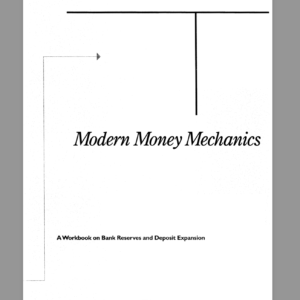
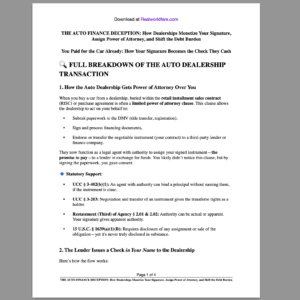
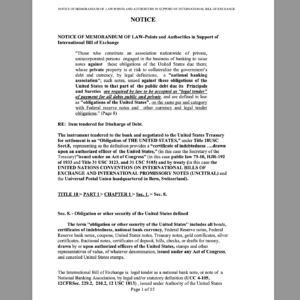
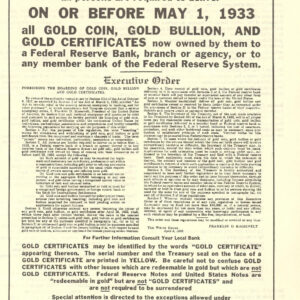
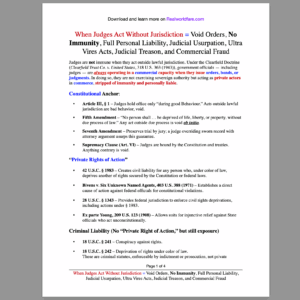



Recent Comments